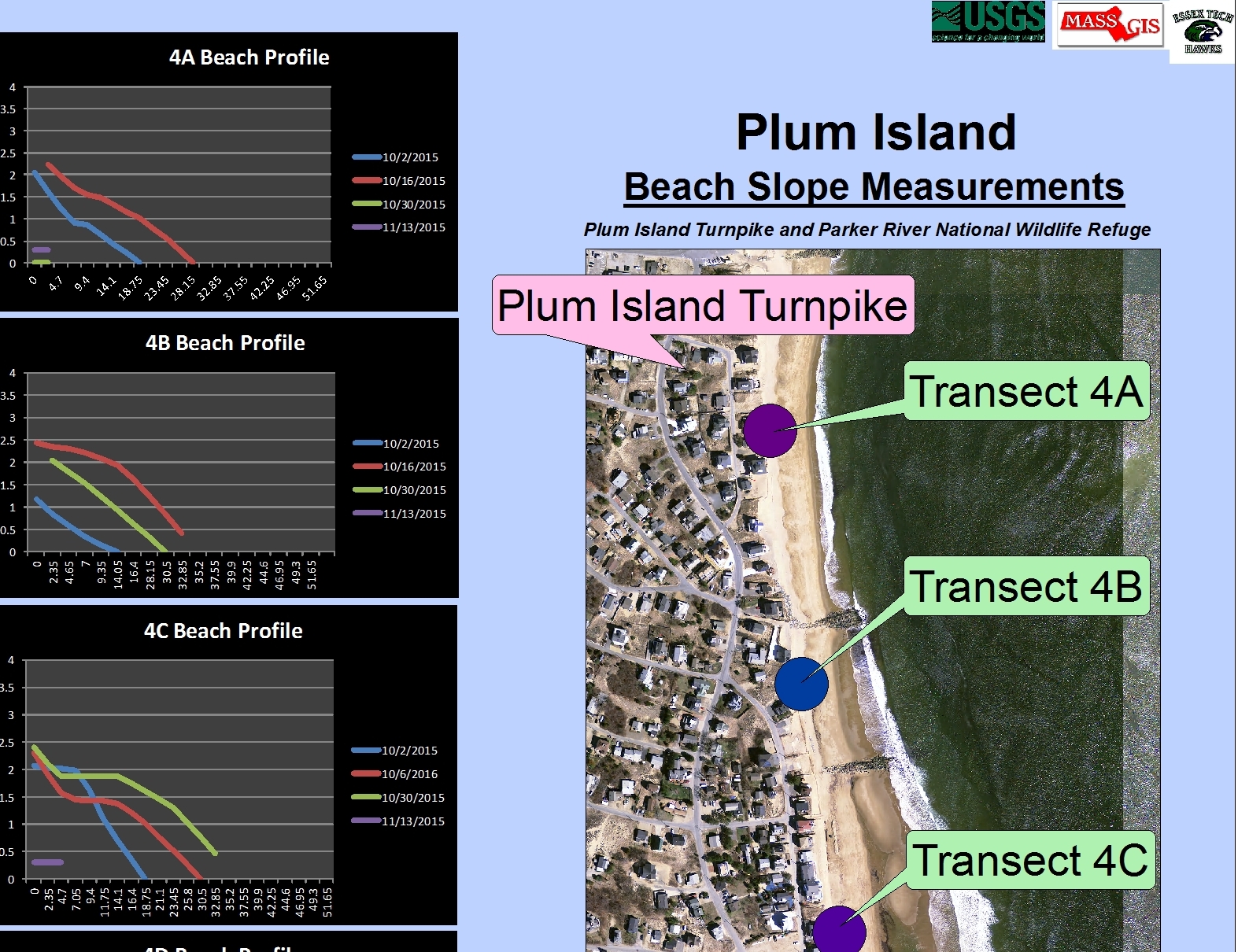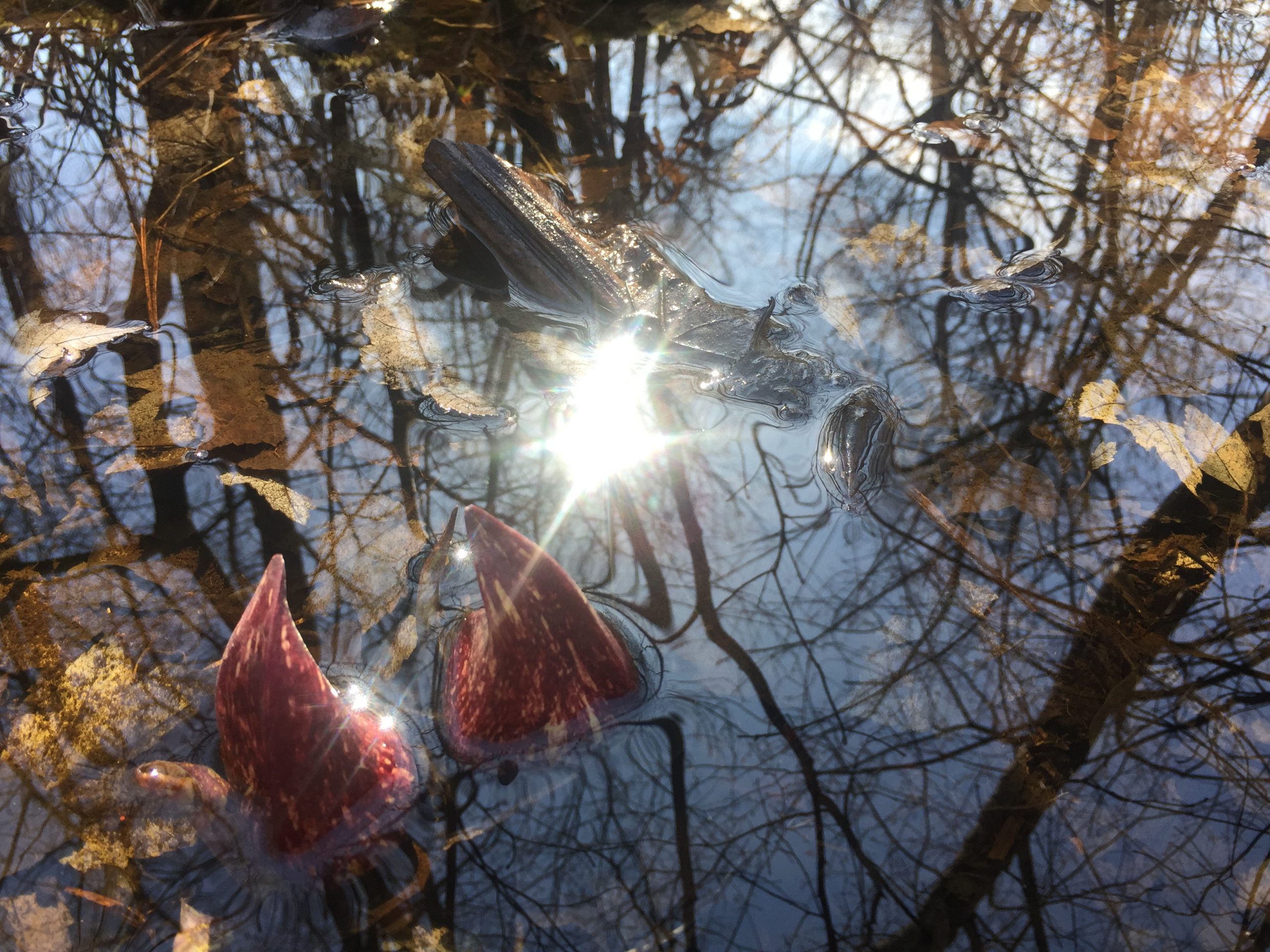The Essex Historical Society and Shipbuilding Museum (EHSSM), is a unique institution nestled along the…

Essex Tech Students Study Plum Island Beach Movement
Students from the Environmental Technology department of Essex Tech High School gave Plum Island a closer look this fall when they completed a field study project on the beach. Seeking to answer the research question: “Are engineered structures improving the beach?”, the students spent five weeks studying the movement of sand and how it relates to the groins, jetties, and other human-built structures on the beach. Once a week, each of five groups used a surveying rod to measure the beach slope every 50 meters, over 250 meters, moving down the beach from Plum Island Turnpike to just south of the boardwalk at the Parker River Wildlife Refuge Lot 1.
The students’ measurements revealed that beach width is maximum at the undeveloped dunes at the Parker River National Wildlife Refuge beach and that beach width is minimum between the groins, which are wave washed even at low tide. Erosion and beach loss in developed dunes, even with engineering structures and sand supplements, is continuing. The students’ science contributed to a wider discussion recently held in Newburyport by volunteer non-profit Storm Surge, an organization that works to educate the public on the impacts of climate change in the region. For a closer look at the students’ research, click here.




Comments (0)